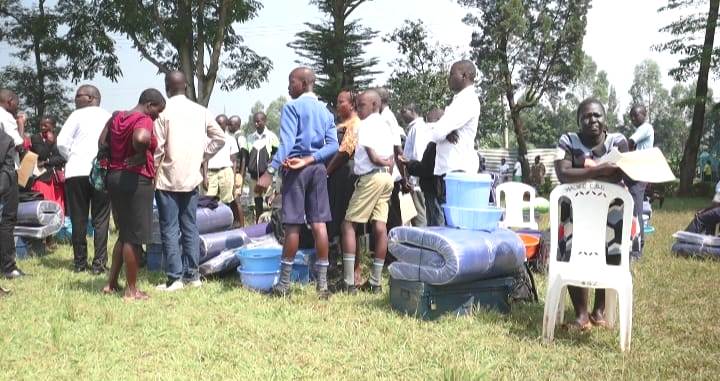Every day, countless moments play out on our roads that seem, on the surface, to be about urgency, convenience, or the pressures of daily life. Yet beneath the surface, they are powerful lessons in civic responsibility, or its erosion. Consider a familiar scene: a father, running late for his daughter’s crucial exam, decides to speed through a one-way street. He is stopped by a traffic constable who points out the violation. The father, visibly agitated, raises his voice: “Do you want her to miss her exam?” Faced with the emotional weight of the plea, the constable relents and waves him on. On the surface, it looks like compassion, a small victory of human empathy over rigid law enforcement. But for the child sitting in the back seat, that moment carries three very specific lessons: breaking the law is acceptable if the reason feels noble, authority can be bent with enough pressure, and rules don’t apply to those in a hurry.
These lessons do not fade with the day’s events; they embed themselves deep in a child’s moral framework. The child has just seen her father break a rule, justify it passionately, and walk away without consequence. She has witnessed the bending of authority under pressure, and she has seen urgency win over order. Whether she realises it or not, these images and beliefs will accompany her into adulthood, influencing how she perceives rules, authority, and civic duty. If one day she becomes a police officer, a government official, a lawyer, or a parent herself, she may carry forward the belief that laws are flexible and negotiable, especially for those with the right excuse or the right connections.
ALSO READ;
Former REREC manager convicted over fake Master’s Degree certificate
The troubling truth is that such incidents are not rare. In traffic, in public offices, even in school administration, children see adults finding shortcuts, pulling strings or breaking the rules to get what they want. And because these acts are often cloaked in noble intentions; saving time, protecting someone’s interests, meeting a deadline, they are not seen as corruption, but as practical problem-solving. This is how the seeds of a culture that excuses misconduct are planted: not in grand scandals or large-scale fraud, but in the everyday small violations that seem harmless in the moment.
Parents, often without realising it, are among the most influential teachers of civic behaviour. They do not teach civic sense only when they talk about honesty, fairness, and respect for the law. They teach it in the split-second decisions they make on the road, in how they interact with authority, and in how they resolve conflicts. Every time a parent cuts corners, bribes, pressures, or bypasses a process, they are running an unspoken civics class in the minds of their children. And those children grow up with a warped understanding of fairness and accountability.
It is easy to say, “This is just a small matter, the bigger issues are elsewhere.” But that is exactly how cultures of lawlessness take root – by allowing small breaches to be normalised. The father in the one-way street case might tell himself he had no choice, that the exam was too important to miss. Yet what if, instead, he had left earlier, accepted the delay or explained to the school honestly why they were late? The lesson his daughter would have learned then would be very different: that respecting rules is more important than winning at all costs, and that integrity is worth the occasional inconvenience.
ALSO READ;
What are parents teaching their children when they break traffic rules?
Civic sense is not built in classrooms alone, nor is it a subject examined once and forgotten. It is formed in the daily, ordinary encounters between citizens and the rules that govern them. For a society to function well, those rules must apply equally to everyone, regardless of their urgency or importance. When children grow up seeing laws as flexible for the privileged or persuasive, they will not hesitate to do the same when the opportunity arises. And when enough citizens adopt this mindset, the very foundation of fairness and order begins to crumble.
The irony is that parents who bend rules for their children often believe they are acting in those children’s best interests. In reality, they may be undermining their children’s moral compass, shaping them into adults who will bend or break rules whenever they find themselves under pressure. The daughter in that back seat might one day be in a position of authority, faced with someone pleading for an exception. And she will remember – not the words her parents told her about honesty and discipline – but the actions they modelled on that hurried morning.
What we teach our children in these moments matters more than we think. A rule obeyed under pressure teaches resilience and fairness; a rule broken for convenience teaches opportunism. The choice lies with every parent, every day, in countless small moments behind the wheel, in queues and in public interactions. The next time the temptation arises to justify a violation for a ‘good cause,’ it is worth asking: what civic sense am I really passing on? Because the truth is, we are not just raising children – we are shaping the citizens, leaders and decision-makers of tomorrow. And they will govern the world we leave behind.
By Ashford Kimani
Ashford teaches English and Literature in Gatundu North Sub County and serves as Dean of Studies.
You can also follow our social media pages on Twitter: Education News KE and Facebook: Education News Newspaper for timely updates.
>>> Click here to stay up-to-date with trending regional stories
>>> Click here to read more informed opinions on the country’s education landscape






